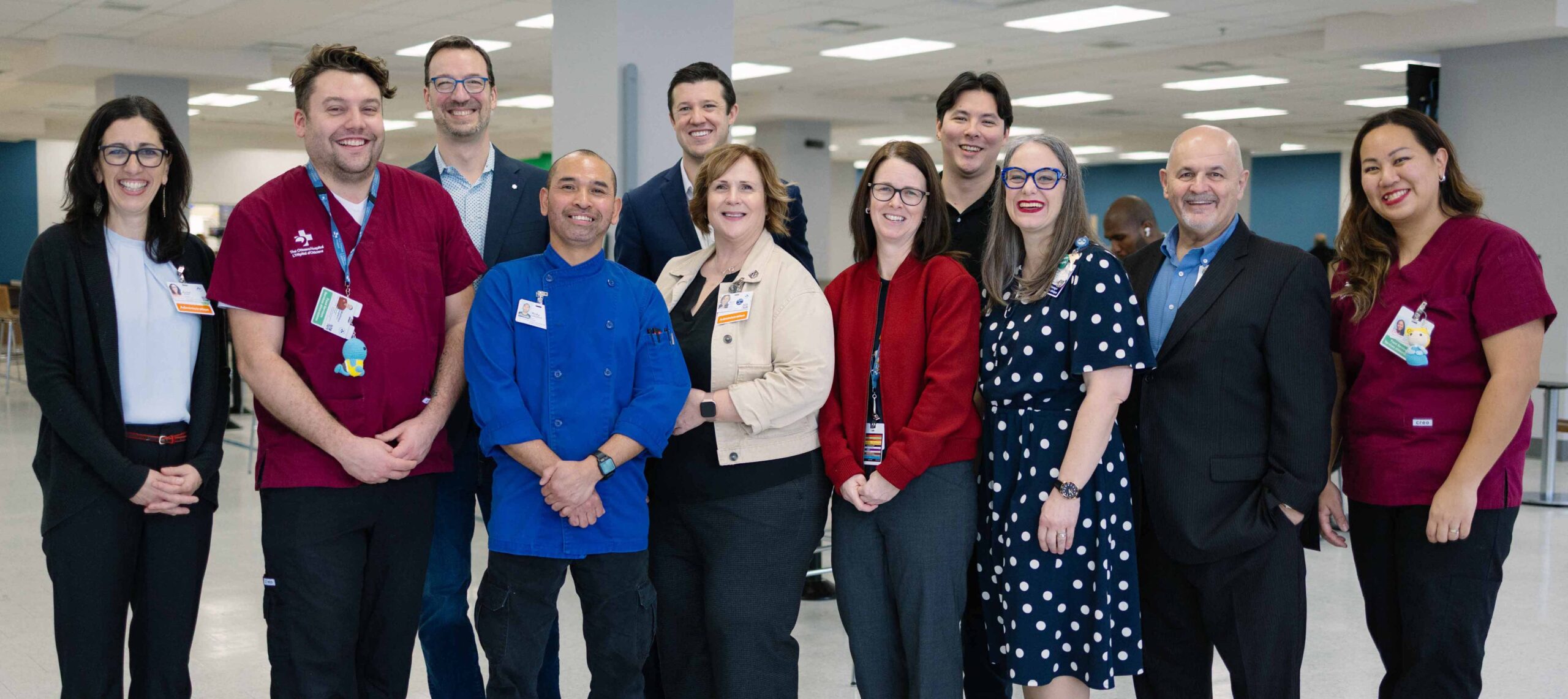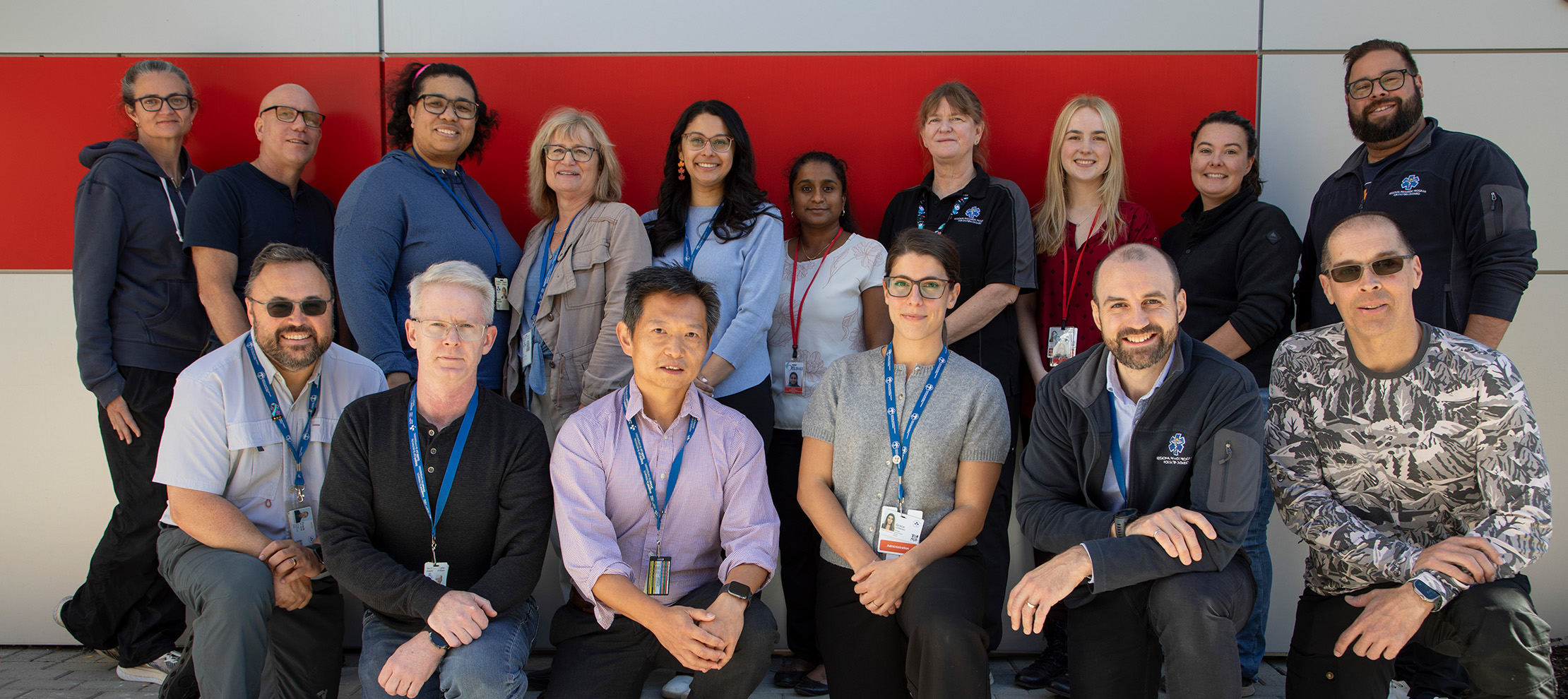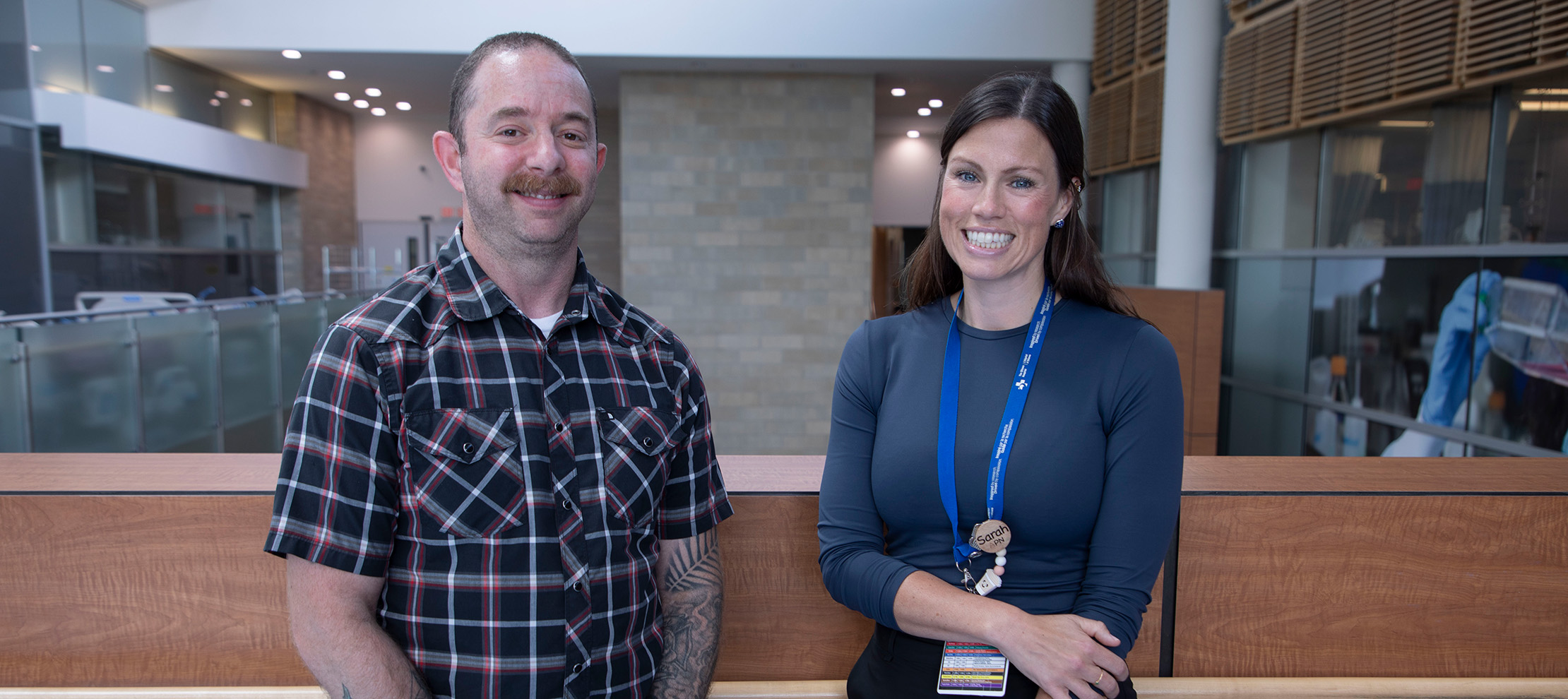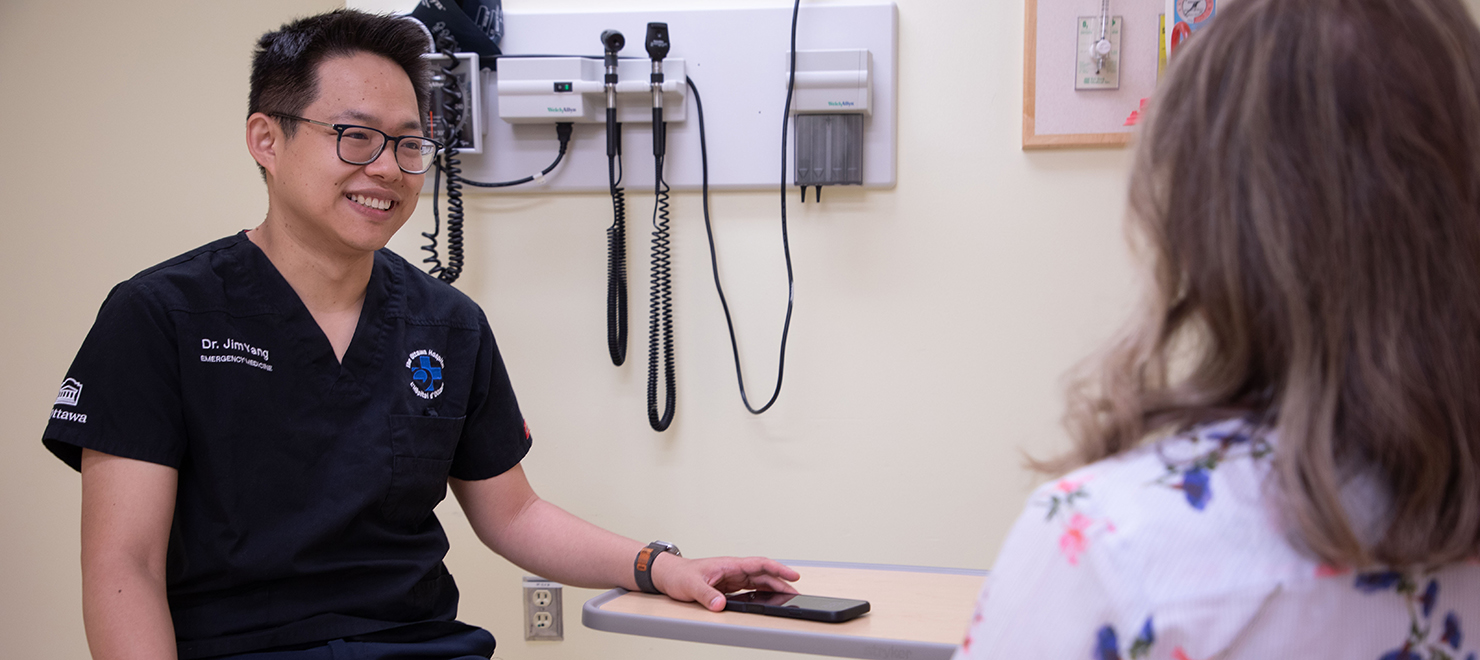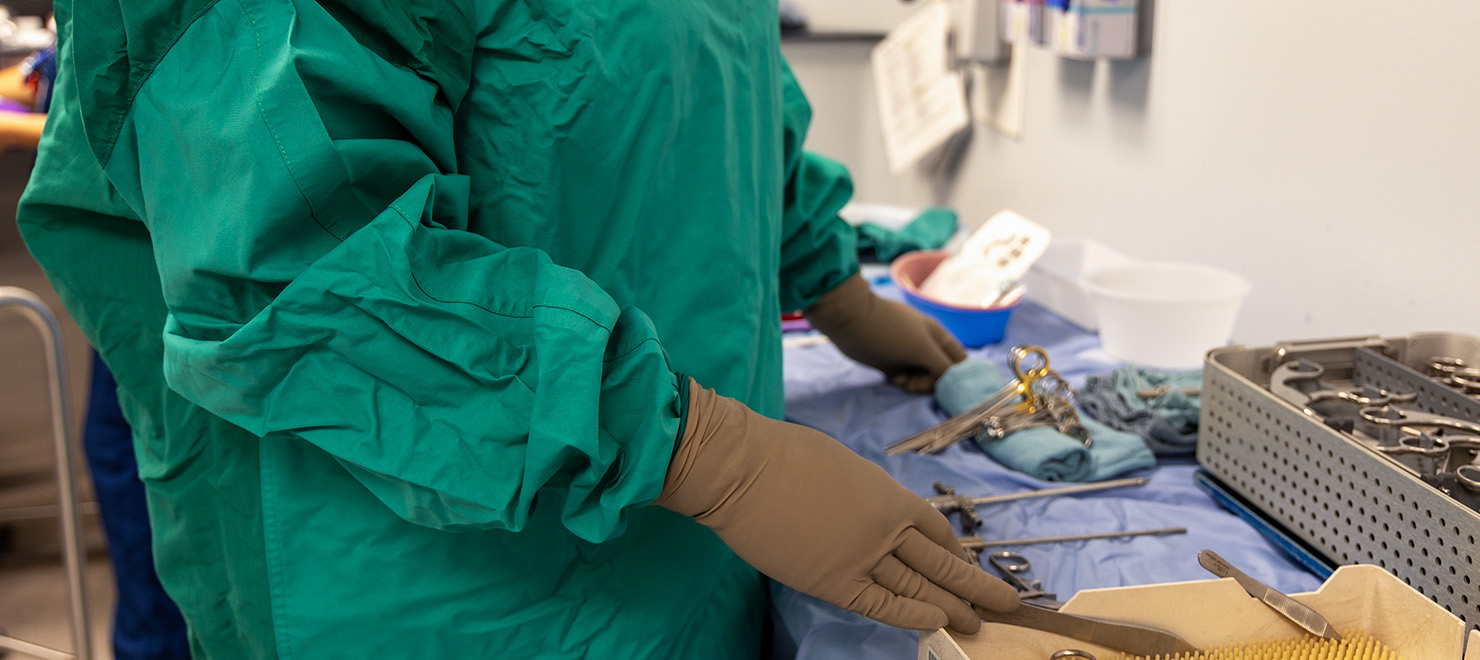
From left to right: Meet “crash testers” Dr. Glenn Posner, Dr. Doran Drew and Jennifer Dale-Tam, RN. Oh, and the bedridden fellow they’re gathered around? That’s Fred, another proud member of the team.
Would you get into a car that hadn’t been crash tested?
“If you were in the Intensive Care Unit and needed a central line put into your neck, how would you like to know that your doctor had never performed or practiced it before?” asks Dr. Glenn Posner, Director of The Ottawa Hospital’s Simulation Patient Safety Program and the University of Ottawa Skills and Simulation Centre.
Simulation training involves recreating real health-care scenarios in a controlled environment, allowing teams to practice their skills. Just like car crash tests use dummies, medical simulations use manikins to stand in for patients.
Discover how the program enhances patient care and safety in this Q&A with Dr. Posner, Lead Medical Educator Dr. Doran Drew and Nursing Lead, Simulation Educator Jennifer Dale-Tam, RN.
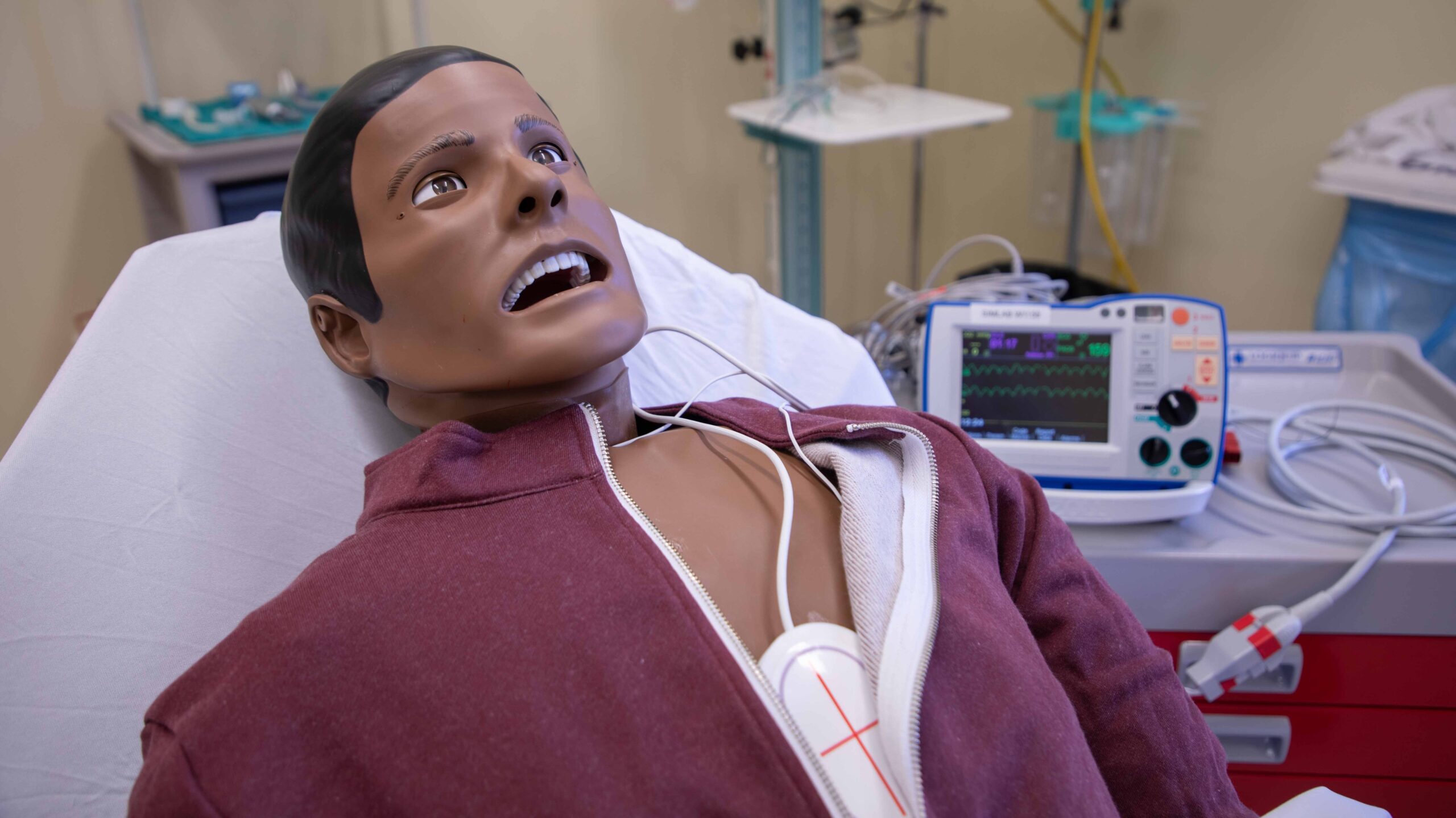
What is the Simulation Patient Safety Program?
Dr. Posner: “Since launching in 2014, the Simulation Patient Safety Program has brought simulation training beyond the four walls of the Skills and Simulation Centre — and into the hospital and other clinical settings, where health-care teams are familiar with the space and the equipment. What makes our program so unique is that it’s hospital-wide and not just for specific departments, so you’ll find us running simulations just about everywhere, from the emergency departments to satellite sites.”
What types of scenarios do teams simulate?
Jennifer: “We can simulate just about anything! One of the most common scenarios we do is cardiac arrest, which is our bread and butter, but we run many other scenarios as well, including deteriorating patients, such as those with severe infections or who are not breathing well.”
How does the program improve patient safety?
Dr. Drew: “The first way is finding latent safety threats, which are issues in the care environment that haven’t caused any problems yet but could under the wrong circumstances. These issues could be as simple as a call bell that doesn’t work or something more critical, like a faulty piece of equipment for a procedure. The second way, which is a huge benefit of this program, is that it allows teams to train and work together in the clinical environment. They get the chance to practice together in a lower-stakes setting so that when they are taking care of a real patient in a real situation, they can perform to the fullest. Just like high-performance athletes, health-care workers need to practice together.”
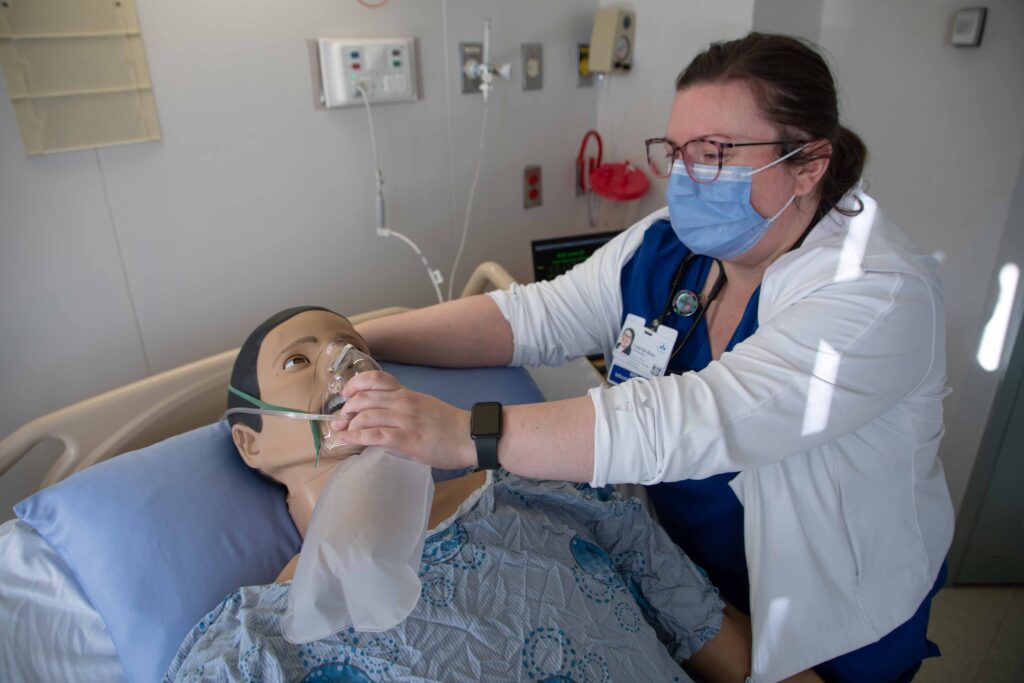
What have been some of the program’s biggest successes over the years?
Jennifer: “There are a lot of them, but here are two big ones: First, a few months before the Westboro bus crash happened in 2019, Dr. Posner’s team had supported a Code Orange (mass casualty) simulation with the Emergency Department, which helped prepare the team for the influx of patients they received after the crash. Second, during the early days of the pandemic, our team was all over the hospital running simulations in various spaces to help develop protocols for COVID-19 because the virus was so unknown back then.”
Could you give us a glimpse of what the future looks like for the program?
Dr. Drew: “We’re very excited about the future. We will expand the number of scenarios we simulate and expand our training activities into more of the hospital’s satellite sites. We also plan to ‘crash test’ the health-care spaces at The Ottawa Hospital’s new campus. This is relatively new with health-care spaces, but we plan to run through various scenarios in the new hospital’s rooms, operating theatres, emergency bays and more to make sure they’ll be successful in serving our patients.”
The Skills and Simulation Centre is home to many more “hands on” training programs that enhance patient safety and quality of care. Visit the Centre’s website for a deep dive — and even a virtual tour.

Support patient care and research at
The Ottawa Hospital
You might also like…
Reimagining hospital food: How The Ottawa Hospital is transforming the patient mealtime experience
In 2024, we launched the trial phase of our Patient Food Transformation Project. The goal was to see if it is possible to improve the overall nutrition and quality of food we serve to our patients, while increasing bedside hospitality, enhancing the overall sustainability of our food services, and not increasing operational costs. Our trial wrapped in 2025 with very promising results.
How we’re helping over 1,400 paramedics enhance patient care and safety
The Regional Paramedic Program for Eastern Ontario (RPPEO) is on a mission to enhance what happens after you dial 911. Here are three new ways this team is helping paramedics deliver better, safer care to their patients.
What to do in an emergency: New first aid video series on YouTube
Would you know what to do if you saw someone experience a stroke, heart attack or opioid overdose? We’ve launched a series of easy-to-follow videos on YouTube that walk you through how to respond to common first aid emergencies.
New program fills gap in care for teens and young adults with cancer
For young people, a cancer diagnosis can disrupt their education, careers, relationships and family-building goals. Our Adolescent and Young Adult (AYA) Cancer Program supports AYAs on their cancer journey, complementing the care provided by their care team.
Less time charting means more time with patients: How The Ottawa Hospital is using AI to support patient care
“I’m seeing and treating more patients.” Find out how DAX Copilot, a powerful AI assistant, is helping our physicians cut down on paperwork, improve their own well-being and spend more time with patients.
New reusable surgical gowns a step towards greener operating rooms
The Ottawa Hospital is finding safe, innovative ways to reduce medical waste in its operating rooms by using more environmentally sustainable products.


 To reset, hold the Ctrl key, then press 0.
To reset, hold the Ctrl key, then press 0.
